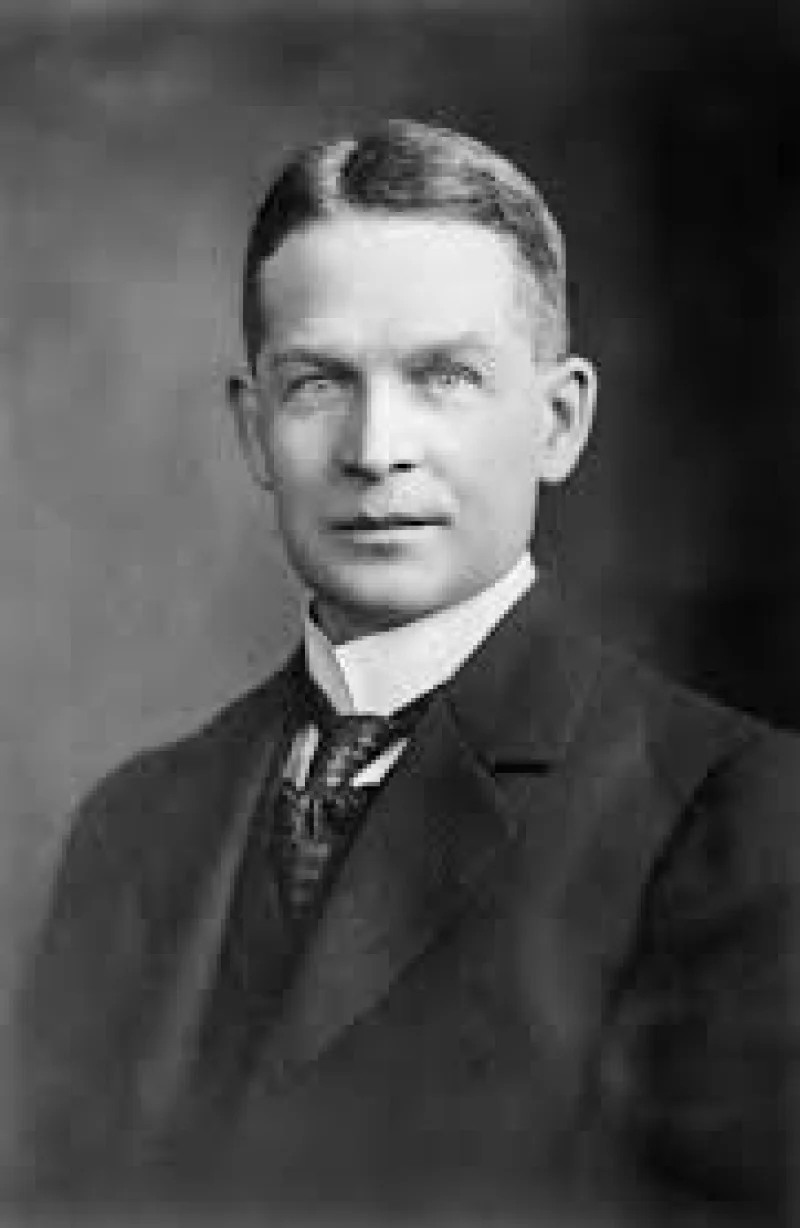Short Summary
Frederick Soddy was a British radiochemist renowned for his groundbreaking work on radioactivity and isotopes. He played a pivotal role in elucidating the nature of radioactive decay and contributed significantly to the understanding of atomic structure. Soddy's work earned him the Nobel Prize in Chemistry in 1921. His contributions have had a lasting impact on both the scientific community and the development of nuclear science.
Early Life & Education
Frederick Soddy was born on September 2, 1877, in Eastbourne, England, into a family with a strong academic background. He was the youngest of six children. Soddy attended Eastbourne College and then went on to study at the University of Oxford, where he graduated with first-class honors in chemistry in 1898. His early interest in chemistry and physics was influenced by his studies under Sir William Ramsay at University College London, where he developed a keen interest in radioactivity, which was a burgeoning field at the time.
Career Highlights
Soddy's career was marked by significant contributions to the field of radioactivity. He collaborated with Ernest Rutherford at McGill University in Montreal, where they worked on the disintegration theory of radioactivity, contributing to the understanding of radioactive decay processes. Later, at the University of Glasgow, he introduced the concept of isotopes, explaining that elements could exist in different forms with the same atomic number but different atomic masses. Soddy's work laid the foundation for modern nuclear chemistry. His prolific career also included professorships at the University of Aberdeen and the University of Oxford.
Major Achievements
- Introduced the concept of isotopes, explaining the existence of elements with identical atomic numbers but different atomic masses.
- Collaborated with Ernest Rutherford to develop the disintegration theory of radioactivity, enhancing the understanding of radioactive decay.
- Awarded the Nobel Prize in Chemistry in 1921 for his contributions to our understanding of isotopes and radioactive decay.
Famous Quotes
- "The chemistry of the future will not be similar to that of the past."
- "Nature is the living, visible garment of God."
Interesting Facts
- Soddy was among the first to suggest that energy could be obtained from the atomic nucleus.
- He was a vocal advocate for the peaceful use of nuclear energy.
- In addition to his scientific work, Soddy authored several books on economic issues and the philosophy of science.
Legacy / Influence
Frederick Soddy's pioneering work in radioactivity and isotopes has left an indelible mark on the field of chemistry and nuclear science. His introduction of the concept of isotopes revolutionized the understanding of atomic structure and had significant implications for the development of nuclear energy and medical applications. His advocacy for the peaceful use of nuclear technology continues to resonate in discussions about nuclear policy and energy.
FAQ
Q: Why is Frederick Soddy famous?
A: He is famous for his groundbreaking work on radioactivity and the introduction of the concept of isotopes.
Q: What major award did he receive?
A: He was awarded the Nobel Prize in Chemistry in 1921.
Q: With whom did he collaborate on the disintegration theory of radioactivity?
A: He collaborated with Ernest Rutherford on the disintegration theory of radioactivity.
Q: What was one of his concerns regarding nuclear technology?
A: He was a vocal advocate for the peaceful use of nuclear energy.












